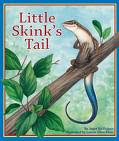 A long time ago, I read a request on a teacher's blog for recommendations of science fiction stories for the younger reader (which I just tried finding again, to no avail...). I didn't have anything to add at the time that hadn't already been mentioned, but I do now--The Green Book, later reissued as Shine, by Jill Paton Walsh, illustrated with pencil drawings by Lloyd Bloom (1981/1988, 74 pp, 8 year olds and up). If Ursula Le Guin were to write a science fiction story for young readers, it might be something like this, and since I think Le Guin is brilliant, this is high praise.
A long time ago, I read a request on a teacher's blog for recommendations of science fiction stories for the younger reader (which I just tried finding again, to no avail...). I didn't have anything to add at the time that hadn't already been mentioned, but I do now--The Green Book, later reissued as Shine, by Jill Paton Walsh, illustrated with pencil drawings by Lloyd Bloom (1981/1988, 74 pp, 8 year olds and up). If Ursula Le Guin were to write a science fiction story for young readers, it might be something like this, and since I think Le Guin is brilliant, this is high praise.The book begins thus: "Father said, "We can take very little with us." Only one book each.
Father, Joe, Sarah, and Pattie, and lots of other families, are leaving a dying earth on one of the last escape ships. They are headed for a far planet that they know almost nothing about, hoping it can sustain human life. Pattie is so young that she will not be able to remember the Earth. But being the youngest, she gets to name the new planet--"Shine," she calls it, a planet where all the plant life sparkles like glass.
How will they build with mineral laden wood they cannot saw? How will they survive, when their rabbits die from eating the glassy grass, and their wheat shines like diamonds? How will they build a community--what will be valued, and why? And then, when they meet other living beings, how will they co-exist?
One step they take in building a life together is to share their books. Joe's copy of Robinson Crusoe is not in great demand (there are multiple copies), nor is Sarah's copy of The Pony Club Rides Again. Many people would have swapped things for a chance to read Father's technology book, but he won't let it out of his sight--he clings to it as his passport toward becoming the new elite of their community. But it is Pattie's book, the "green book" of the title, that becomes the most important. Its pages are blank, and her older siblings had mocked her choice. But in the end, this is the book that will tell the new story the colonists are creating. It is no longer empty, but "full of writing, very large and round and shaky."
And Father started to read to the people of Shine. He turned "back and back in the green book to the very first page, and began to read: "Father said we could take very little with us..."
I find new planet exploration questions like this extremely interesting, and Walsh does a great job with them. In her 74 pages, Walsh makes every word count. It's very easy to imagine kids that haven't thought of these things before reading this book with wide eyes and engaged minds, and imagining and daydreaming after it over.
A more detailed post about Shine can be found here at the Inter-Galactic Playground (a very interesting blog whose author, sadly, seems to have decided to more or less give up on it).
Jill Paton Walsh has written some great books for kids-- particularly A Parcel of Patterns (1984) and A Chance Child (1978). More recently she has turned to writing continuations of Dorothy Sayer's Lord Peter series.


































